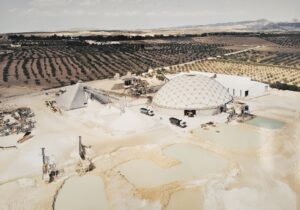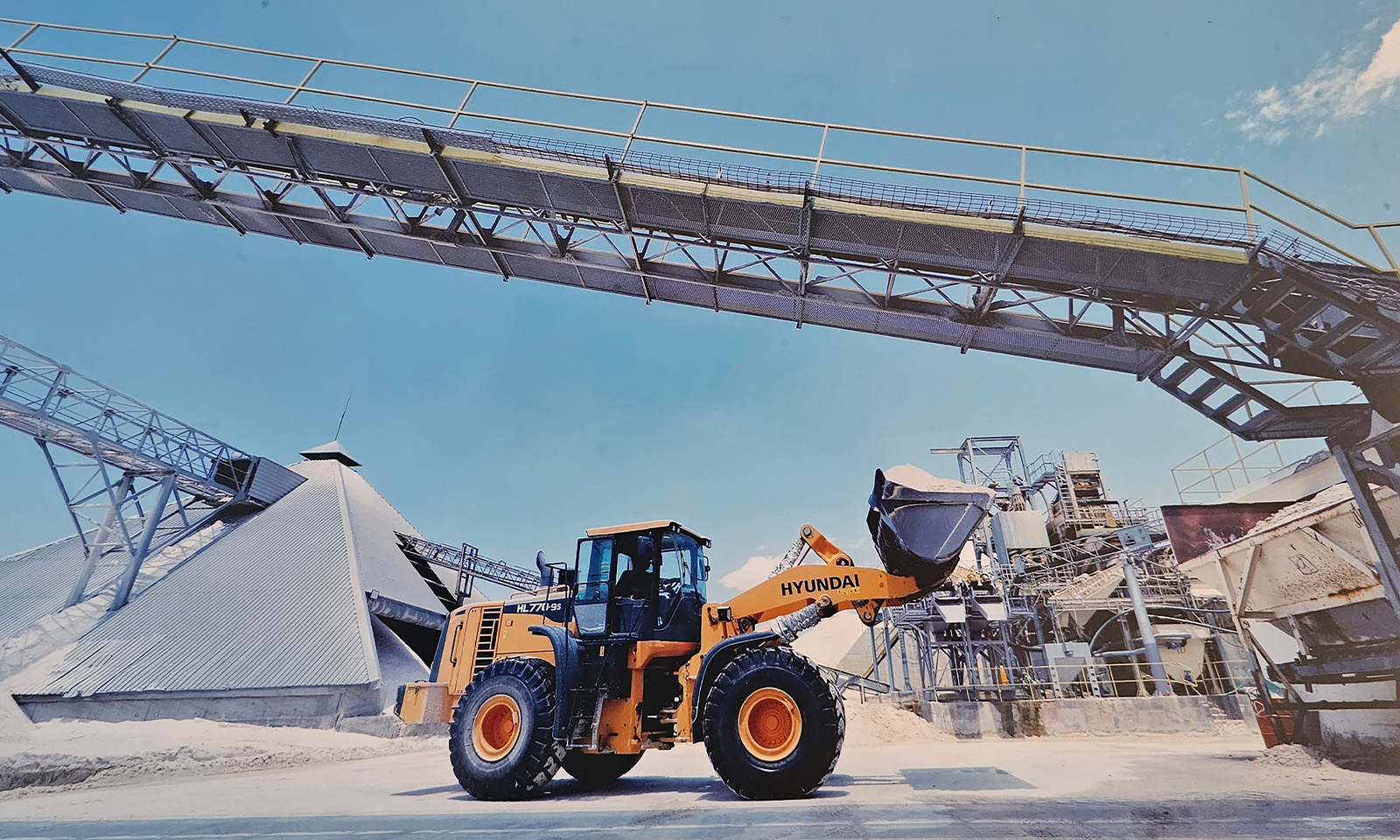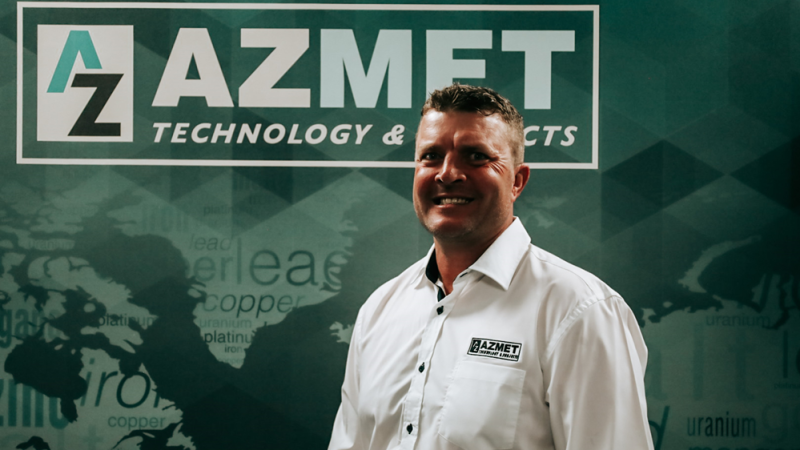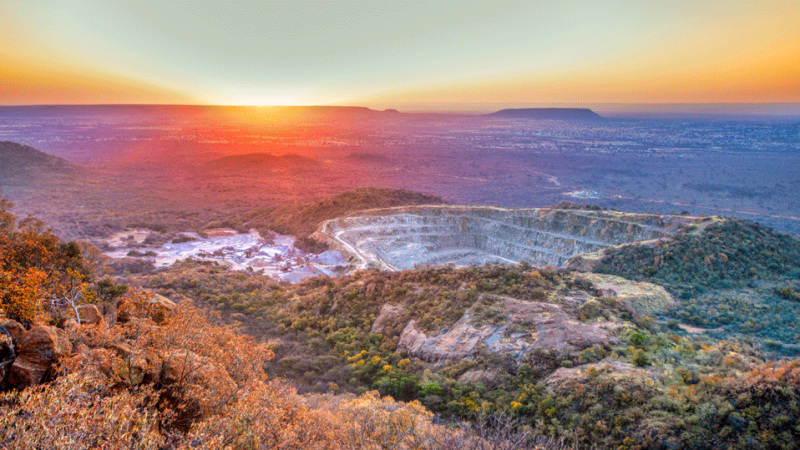Minerali Industriali is an independent, family-owned Italian company created through the merger of two historical Italian groups: Maffei, founded in the early 1900s and Gruppo Minerali, which has been active since the 1970s. It consists of 11 companies around the world specialising in the treatment of silica sand across a range of applications.
Within that group, Minerali Industriali has its own department of engineering and machinery developing its own equipment, as well as a department to sell plants producing basic systems for other minerals. The group also contains Minerali Industriali Tunisia, the Tunisian arm of the company created in 2001, with two facilities in the centre of the country and one on the coastline. These plants produce refined sand for the glass industry, nearly all exported to Italy.
It is not surprising that the glass industry is one with exacting specifications, but the task of meeting those specifications is not complicated.
“It’s really simple, for any mineral, the mineral itself is not complicated,” says Kaies Slim, Deputy Director of Minerali Industriali Tunisia. “In our markets, the final specification required by the customer is our focus point and we are great at giving the customer what they need. The glass industry requires stable quality. That does not mean excessively high levels of quality, what is important is that the quality is consistent, and that is what our grade of sand gives them.”
Ensuring that the sand fits that specification begins with the quarry.
“We have a refined selection of raw materials, relying on three or four suppliers besides our own quarry that guarantee a certain stability of raw materials,” Slim says.
This ensures the mix of raw materials at Minerali Industriali Tunisia’s plants is stable, and that quality is confirmed with rigorous quality control, using machinery with precise parameters. That consistent quality is combined with inherent flexibility, with the company able to prepare loads as little as a couple of days in advance, with room for customers to change their minds or adapt to changing constraints.
A Tax on Sand?
While Minerali Industriali Tunisia has no issues when it comes to quality or demand, its work has been made more difficult due to customs taxes imposed by the Tunisian government. The economic impact of this tax has brought production to a halt.
“The customs tax is more than one time and a half the price of sand for the glass industry,” Slim observes. “For two months we have been struggling to find a viable compromise with the government. The Tunisian government considers mineral resources a national treasure that has some value added for the government. So, they are taxing sand exports by 30 euros where the price is 20 euros. It is the cost and a half.” So, we are totally out of the market!
It is something the government has tried to impose before, without much success, and Slim is hopeful that once again the government will see their mistake.
“In 2019 the same thing happened in Egypt. They had the same brilliant idea of deciding that sand is a national treasure, stopping all exports,” Slim recalls. “After nine months they realised nobody will pay that kind of price. We are looking at this tax the same way. They cannot go forward with this. So, we stopped our operations, and we will restructure the business, and wait. This cannot last.”
A Better Gradient of Talent
Besides that, challenge, Minerali Industriali Tunisia has seen a great performance, with productivity growing by 75% in two years at the same time as a reduction to fixed costs of 15%. This is possible because of the great team the company has in place. Minerali Industriali Tunisia knows better than most that raw material is important, but that it is equally important to put it through a refining process to reach the appropriate level of quality. With his experience working abroad, Slim brings unique perspectives to his firm’s recruitment and training processes.
“I have been with this company for two years. Before that I was an engineering manager in Atlanta, Georgia, overseeing six plants. I came back from the US with a new idea of talent management and recruitment,” Slim says.
In his time in the company, Slim has been behind two landmark achievements.
“We have seen a 75% increase in productivity, and the reason for that is that everyone in the plant, anyone is allowed to come to us with a development project,” Slim insists. “People have the opportunity to take a project to the top, and it really was just like brainstorming for six months. People kept coming to see me and present projects and ideas. They felt motivated. We offered incentives, but besides that people felt motivated because everyone knew they could add something to the company.”
From there, Slim went on to hire some new engineers to add to the company’s technical grounding. Getting the right talent in place can be a challenge given the remote placement of Minerali  Industriali Tunisia’s facilities, but the company has been bringing people in on placements of three-to-four months over the summer.
Industriali Tunisia’s facilities, but the company has been bringing people in on placements of three-to-four months over the summer.
“During that period our team would evaluate them, finding the candidates who are most suitable for team synergy with the right technical background, while developing productive relationships with other staff,” Slim says.
Ultimately the company recruited two of the candidates, and the hires have already started to pay off.
“The first one in six months saved the company the cost of a consultant for three years,” Slim says. “The thing is, if you create an environment where people feel like they are working as a team, you can get the best out of them. If you take out that idea of having a boss, but instead treat the team leader as a coach or mentor, people go forward with it.”
“Going forward” is precisely what Slim has in mind when we speak to him.
“Before this surprise from the government we had three major investments planned,” he tells us. “We were planning to have a new mineral line, a new acquisition, and we were planning to develop a new plant. We are looking to produce a higher-value product with a higher margin. That is the level we are at.”
Despite the obstacles the company has faced from the government, Slim remains a strong believer in Tunisia’s potential.
“There is a saying that Tunisia is a good environment for business, but it is complicated. It has a different cultural background, but Tunisia is a very good country to launch investment. People who know their way around can have very profitable business here,” Slim concludes.







